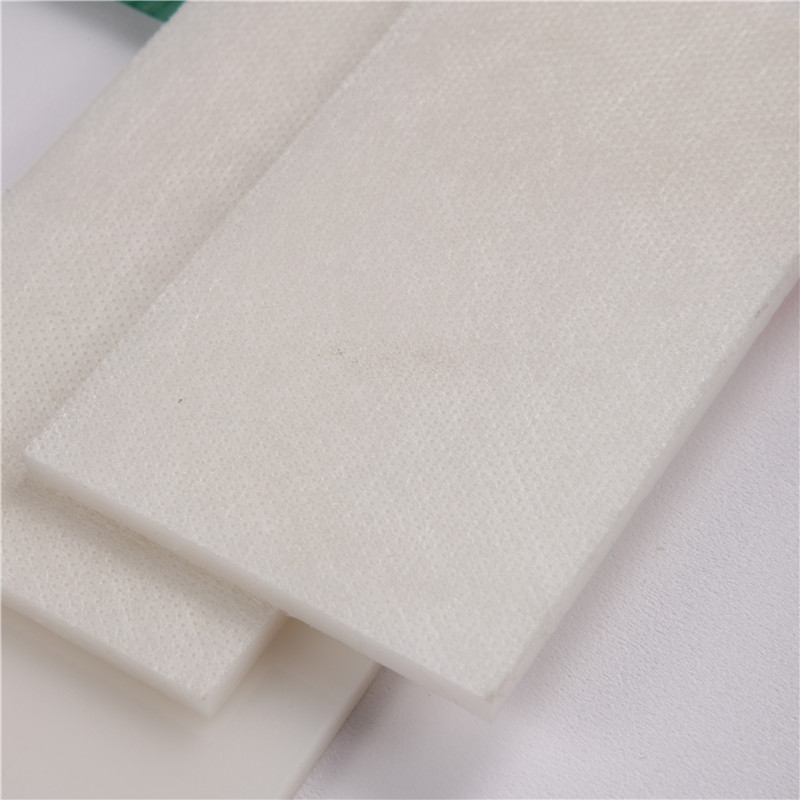სექ . 28, 2024 03:53 Back to list
High-Density Polyethylene Pipe Applications and Benefits for Solid Construction
Understanding Solid HDPE Pipe An Overview
High-Density Polyethylene (HDPE) pipes have become a popular choice for various piping applications due to their exceptional properties and versatility. Solid HDPE pipes, in particular, are known for their durability, chemical resistance, and lightweight nature. This article aims to delve into the characteristics, benefits, applications, and considerations surrounding solid HDPE pipes.
What is Solid HDPE Pipe?
Solid HDPE pipe is manufactured from high-density polyethylene, a thermoplastic polymer known for its high tensile strength and impact resistance. The production process involves melting the HDPE resin and extruding it into various diameters and lengths. The result is a pipe that boasts a smooth interior surface, which minimizes friction loss and enhances flow efficiency.
Key Characteristics
1. Durability Solid HDPE pipes are designed to withstand harsh environmental conditions. They are resistant to corrosion, rust, and scaling, making them suitable for both underground and above-ground applications.
2. Chemical Resistance One of the most significant advantages of HDPE pipes is their resistance to a wide range of chemicals, including acids, bases, and solvents. This makes them ideal for transporting industrial wastewater and chemicals.
3. Flexibility HDPE pipes are more flexible than many traditional pipe materials, such as PVC and metal. This flexibility allows for easy installation and can accommodate ground movements without risk of breakage.
4. Lightweight Nature Compared to conventional piping materials, HDPE pipes are considerably lighter. This characteristic reduces transportation costs and simplifies handling during installation.
5. Long Lifespan With a lifespan of 50 years or more, properly installed solid HDPE pipes can significantly lower maintenance costs and reduce the need for frequent replacements.
Benefits of Solid HDPE Pipe
- Cost-Effective While the initial cost of HDPE pipes may be slightly higher than some alternatives, their longevity and lower maintenance requirements can lead to significant savings over time.
- Environmentally Friendly HDPE is recyclable, further contributing to its appeal in sustainable construction practices. Many manufacturers use recycled material to produce HDPE pipes, minimizing waste and environmental impact.
- Wide Range of Sizes Solid HDPE pipes are available in various diameters and lengths, making them suitable for diverse applications ranging from irrigation to municipal water systems.
solid hdpe pipe

- Resistance to Microbiological Growth The material is less susceptible to biofouling, making it a preferred option for water supply systems.
Applications
Solid HDPE pipes are widely employed across numerous industries, including
- Water Supply and Distribution Their resistance to corrosion and ability to handle high pressure make them suitable for municipal water systems, irrigation, and potable water distribution.
- Industrial Applications Many industries use solid HDPE pipes for the transportation of chemicals and waste materials due to their chemical resistance.
- Telecommunications HDPE pipes are often utilized as conduit systems for telecommunications and electrical cabling due to their lightweight and flexible nature.
- Mining Operations The mining industry frequently uses HDPE pipes for slurry transport and dewatering applications.
Considerations
While solid HDPE pipes offer numerous advantages, certain factors should be considered before their installation
1. Installation Method Proper installation techniques, including fusion welding, are crucial for ensuring leak-free joints and overall pipe integrity.
2. Temperature Sensitivity HDPE pipes may experience changes in mechanical properties at extreme temperatures. It is important to select the appropriate grade of HDPE pipe based on the intended application.
3. Gapping and Expansion Expansion and contraction may occur with temperature changes; therefore, appropriate allowances should be made during installation to mitigate these effects.
Conclusion
Solid HDPE pipes have revolutionized the piping industry with their remarkable properties and wide-ranging applications. Their durability, chemical resistance, and environmentally friendly nature make them a preferred choice for many sectors. As industries continue to seek sustainable and efficient solutions, solid HDPE pipes will undoubtedly play a pivotal role in the future of infrastructure development. Whether you are involved in water management, industrial processes, or telecommunications, understanding the benefits and characteristics of solid HDPE pipes is essential for optimizing your project’s success.
-
Durable HDPE Sheet | Versatile & Impact-Resistant Plastic
NewsAug.13,2025
-
Premium PVC Soft Sheets: Clear, Flexible & Durable
NewsAug.12,2025
-
Premium PVC Round Rods: Durable, Chemical Resistant, Easy to Machine
NewsAug.11,2025
-
PP U-channel: Chemical-Resistant, Lightweight & Durable
NewsAug.10,2025
-
Transparent PVC Pipe: Clear Flexible Tubing for Fluids
NewsAug.09,2025
-
Durable PP Rigid Sheet: Versatile & High-Quality Plastic Panels
NewsAug.08,2025

